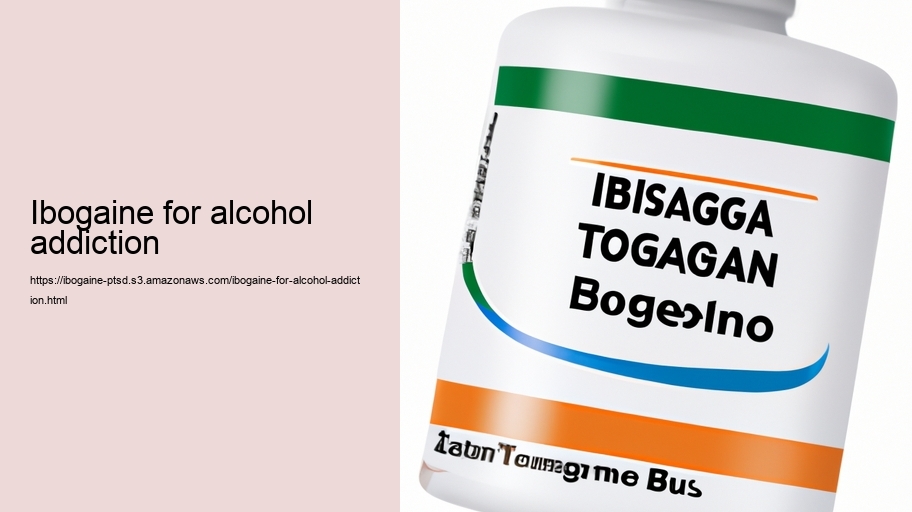Title: Ibogaine: A Potential Pathway to Recovery from Alcohol Addiction
Introduction
In the quest for effective treatments for alcohol addiction, a myriad of approaches have been explored, ranging from traditional rehabilitation programs and support groups to innovative medical interventions. One such unconventional therapy that has garnered attention is ibogaine—a naturally occurring psychoactive compound derived from the roots of the West African shrub Tabernanthe iboga. Despite its complex legal status and the need for further research, anecdotal evidence suggests that ibogaine may offer promising results for individuals struggling with alcoholism. This essay delves into what ibogaine is, how it's purported to work in treating alcohol addiction, and the potential benefits and risks associated with its use.
The Nature of Ibogaine
Ibogaine is a unique substance with psychedelic properties that has been used for centuries by indigenous peoples in West Africa for ritualistic and healing purposes. In the Western world, it gained prominence as an alternative treatment for various drug dependencies including opioids, stimulants, nicotine, and alcohol. Unlike other common psychedelics like LSD or psilocybin mushrooms, ibogaine is known for its strong oneirophrenic (dream-inducing) effects which can lead to intense psychological introspection.
Mechanism of Action
The specific mechanisms through which ibogamine exerts its effects on addiction are not fully understood; however, researchers believe that it acts on multiple neurotransmitter systems simultaneously. It seems to interact primarily with serotonin receptors but also affects dopamine and opioid receptor sites—areas of the brain implicated in addictive behaviors. The compound's metabolite noribogaine appears particularly influential in reducing cravings and withdrawal symptoms long after ingestion.
Potential Benefits
Those who advocate for the use of ibogaine in treating alcohol addiction cite several potential benefits:
1. Reduction in Withdrawal Symptoms: Anecdotal reports suggest that a single dose can significantly alleviate physical withdrawal symptoms from substances like alcohol.
2. Psychological Insight: The powerful psychotherapeutic experience induced by ibogaine may enable users to confront subconscious drivers behind their addiction.
3. Long-Term Craving Suppression: Some evidence indicates that ibogaine could lead to sustained reduction or even elimination of cravings.
4. Short Treatment Duration: Unlike conventional therapies requiring ongoing participation, some tout ibogain’s ability to produce rapid results within days.
Risks and Challenges
Despite these purported benefits, there are significant concerns surrounding the therapeutic use of ibogaine:
1. Legal Status: Ibogaine remains illegal or strictly controlled in many parts of the world due to its classification as a Schedule I substance under international conventions.
2. Safety Concerns: There are documented cases of life-threatening side effects including heart arrhythmias and fatalities when used improperly or without medical supervision.
3. Lack of Standardization: The unregulated nature means dosages vary widely; this inconsistency can lead to unpredictable outcomes.
4. Limited Research: Scientific studies are scarce due partly to legal restrictions; thus definitive conclusions about efficacy cannot be drawn.
Conclusion
While intriguing stories circulate regarding transformative experiences resulting from iboga treatment sessions among individuals battling alcoholism, caution must be exercised given the lack of comprehensive clinical data supporting these claims. Moreover, safety issues highlight an urgent need for rigorous scientific investigations into appropriate dosing regimens along with standardized protocols ensuring patient well-being during such interventions.
Until more information becomes available through controlled studies confirming both safety and efficacy profile—and until legislative landscapes shift towards acceptance—the usage of iboagin remains experimental at best within most healthcare frameworks designed around managing alcohol dependence syndrome.
Nonetheless, if future research validates initial positive accounts while overcoming current regulatory hurdles then perhaps one day we may witness a paradigm shift where compounds like Ibogen hold legitimate places alongside established modalities providing hope those grappling relentless grip alcoholic addictions so often wield upon lives touched affliction thereby offering yet another pathway toward reclaiming sobriety newfound personal freedom await horizon waiting embrace all seek healing transformation therein lies promise held within enigmatic molecule simply known as "Ibogen".
